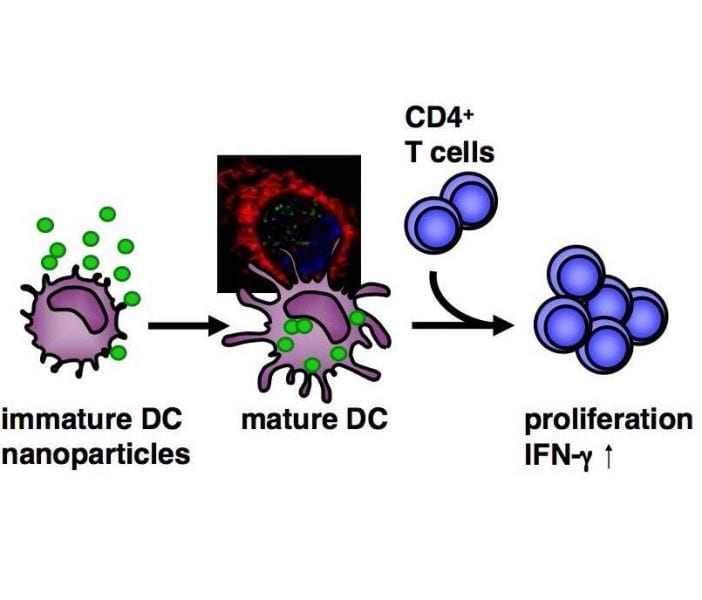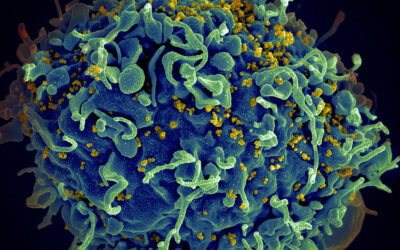Polymeric nanoparticles for immunotherapy represent a dynamic research field. The possibility to control their size, charge, and other surface properties provides the opportunity to affect both uptake by immune cells and induction of immunity. Dendritic cells (DC), whi ch represent the most potent antigen-presenting cells of the immune system, are one of the main targets of current NP-based immunotherapeutic approaches against tumors.
ch represent the most potent antigen-presenting cells of the immune system, are one of the main targets of current NP-based immunotherapeutic approaches against tumors.
Researcher from the Max Planck Institute for Polymer Research in Mainz, Germany, now study the uptake of unfunctionalized, sulfonate- and phosphonate-functionalized polystyrene NP by immature DC (iDC) and mature DC (mDC). iDC display a higher time- and dose-dependent uptake of functionalized polystyrene NP mDC. Notably, NP induce an enhanced maturation of iDC resulting in a significantly enhanced T cell stimulatory capacity.
Considering the increasing use of nanomaterials in clinical studies, investigations on the effect of nanomaterials on cell morphology and functionality are critical for screening materials that can potentially be used in clinical settings. The results are important for the research on immunomodulatory properties of NP and their potential applications in immunotherapy.

















